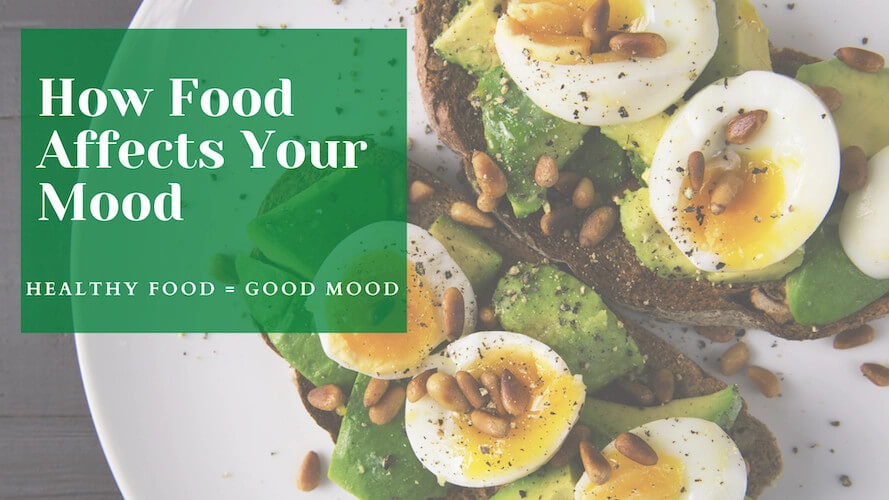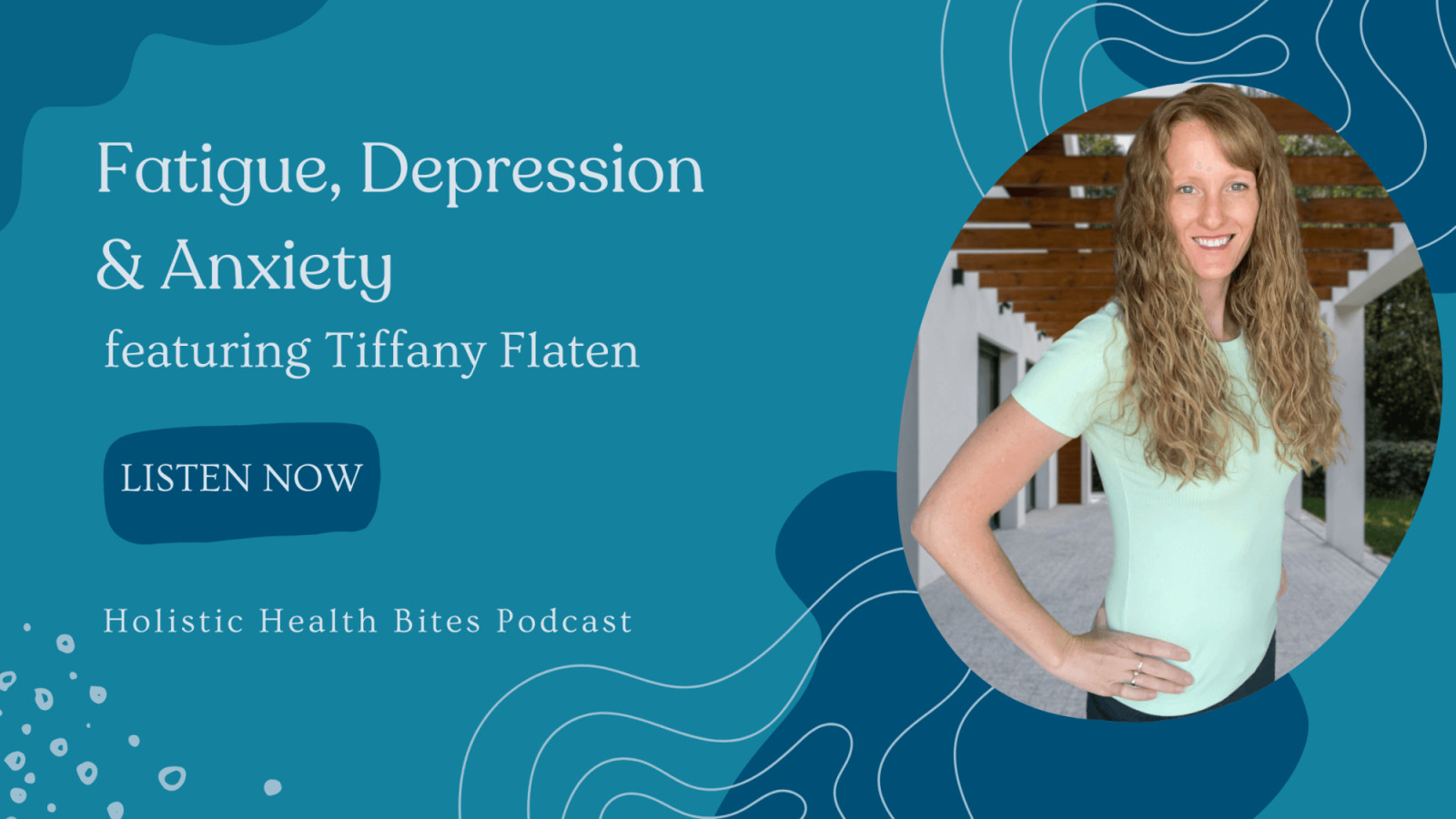
I hear complaints from clients about being “hangry” or feeling a sudden onset of sadness, weakness, lethargy, or apathy when they haven’t eaten in a while. Do you know what is going on in your body that causes these mood changes?
You might be surprised to know that what you eat can alter your mood. How does food affect your mood? Multiple pathways – from food allergies, food sensitivities, low nutrient intake, blood sugar imbalances, cravings, additives, and preservatives (such as artificial colors or MSG which can be neurotoxic), food intolerances, gut imbalances (such as yeast or bacterial overgrowth in the gut), and other toxins. Many additives and refined foods contribute to mood disorders like depression and anxiety. If you want to be in a good mood more often, keep reading!
How does food affect your mood
Eating a healthy diet promotes the growth of healthy bacteria inside the human intestine. Processed and unhealthy foods cause inflammation that can affect neurotransmitter functioning. Studies indicate that consuming whole food can relieve depression symptoms. An unhealthy diet has been linked to an increased risk of dementia, stroke, and other cognitive declines. If you have a healthy diet, you are likely going to see few mood swings or undesirable moods.
For example, food that has been highly refined or cooked at a high temperature can release toxins that cha your mood and overall health. Additionally, what you eat has a direct impact on the levels of blood sugar in your body. Uncontrolled blood sugars have been linked to increased rates of changes in mood like anxiety and depression – even in non-Diabetic people.
Moods, Lack of Sleep, and Poor Food Choices
Sleep quality can also change what you eat. Food sensitivities, allergies, and intolerances, sugar cravings, gut issues, or nutrient deficiencies can all impact how well you sleep at night and how well-rested you feel during the day, thereby changing your mood.
When you eat unhealthy meals, snacks and beverages they affect your moods and emotions. However, healthy foods can actually improve your mood too if you choose nutritious and whole healthy options! What you eat affects your body on a cellular level, affecting every function in your body – from the cells that make up your hair to the cells in your brain. In fact, proper nutrition can even protect your brain from mood disorders like anxiety and depression.
Gut Health and Mood Regulation
If you have gut health issues, it’s likely that this will affect your mood as well. For example, if you have food sensitivities or allergies, a lot of the product options out there will trigger symptoms of anxiety or other mood disorders.
Studies show that having an unhealthy gut can lead to depression, anxiety, or mood swings. When the gut lining is in a healthy state, it can regulate how much serotonin one produces and absorb. Low levels of serotonin are correlated with low moods and higher rates of depression.
Nutrients are absorbed from our foods during the digestive process, mostly in the small intestine. If you have gut imbalances, you may not be able to absorb these vital nutrients. Without these nutrients, you may not be able to produce or regulate neurotransmitters, hormones, or other chemical messengers needed to conduct chemical reactions.
Overgrowth of some bacteria, fungi, or yeast can also lead to digestive symptoms, chronic ailments, and not feeling well overall. When you don’t feel well, you don’t eat well which only furthers the problem. Some healthy foods like those filled with fiber, prebiotics, and probiotics can actually make these symptoms worse too! Check out this article on why that is. A healthy gut is the foundation for optimal health.
Food Toxins Cause Mood Changes
We are exposed to food toxins every day. Some toxins are added to food products, like artificial sweeteners, artificial colors, preservatives, emulsifiers, and flavors. Others are present naturally (like phytates, oxalates, and other lectins). Some toxins are produced during the cooking, like heterocyclic aromatic amines, and polycyclic aromatic hydrocarbons. These affect our mood by damaging the mitochondria (energy power plants of the cells), interfering with proper hormone production and signaling, and preventing proper cellular functioning.
Some foods contain chemicals that act like estrogen in the body. This can change hormone levels and cause depression or anxiety symptoms to get worse. Many of these estrogen mimickers can lead to a buildup of the harmful forms of estrogen (estrone and estradiol) which have been linked to obesity, weight gain, and even some cancers.
How Healthy Eating Creates a Better Mood
It’s important to have a good routine before eating. The practice of preparing your food – washing, chopping, and cooking the foods – starts the digestive process. The sight, smell, and feel of the ingredients help the body to begin to produce and release digestive enzymes and hormones needed for proper digestion. Making meals from whole ingredients is not only healthier but actually helps you digest them!
When eating, do so slowly, mindfully, and chewing thoroughly. Enjoy your foods. Smell them. Taste them. Savor them. These behaviors also help the digestive process and slow down the overall meal.
Avoid toxins, artificial ingredients, and refined foods. Choose whole, unprocessed foods as much as possible. Not sure what that means? Eat more foods that don’t require a nutrient label because they only have one ingredient (beef, chicken, apple, broccoli, etc). Limit or avoid foods that come in boxes, cans, packages, restaurants, and fast food shops.
Seek out quality complex carbohydrates, healthy fats, and bioavailable proteins like avocado, nuts, salmon, eggs, beef, and whole vegetables.
Conclusion
What you put in your mouth affects your mood by altering your gut health, hormones, toxin load, and overall wellness. Processed foods are dangerous because they have added toxins that affect your body’s ability to regulate its own hormones. This then affects your mental health. Our brains need healthy fats and proteins from fish, grass-fed beef, eggs, or quality plant-based sources to thrive and maintain proper function.
The great news is you don’t have to completely overhaul your diet in one step. Start small with one change each time you grocery shop. Replace one processed item with one whole food option each time. You will find your moods are much more stable and you’re more often in a good mood!





















0 Comments